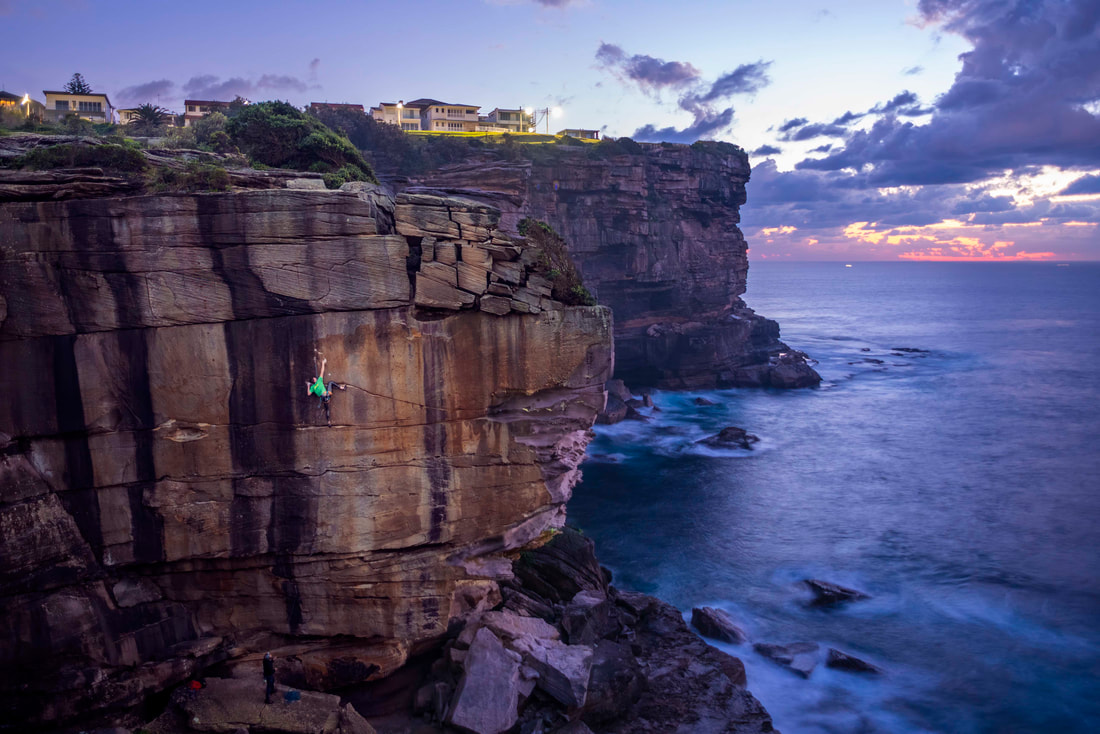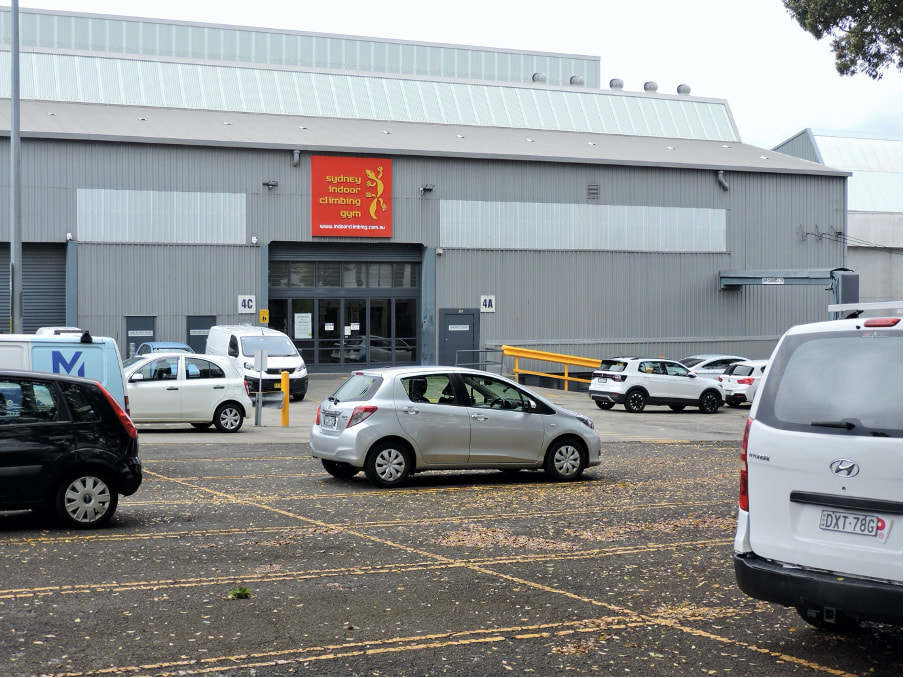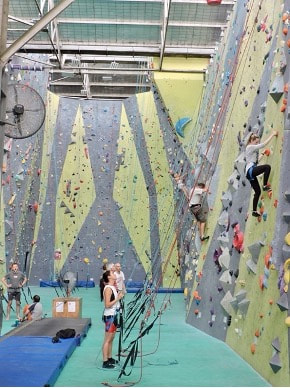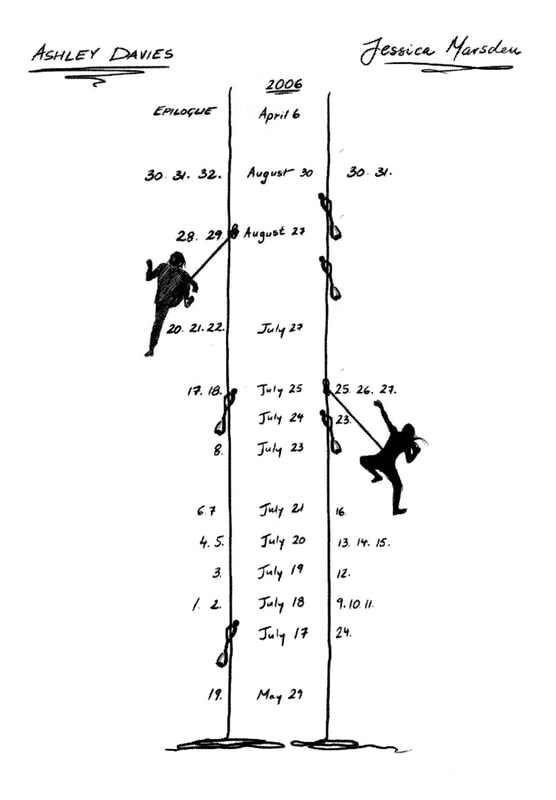In the September/October 2023 edition of Common Climber Keith Bell reviewed the fiction story Climb by Philip Barker. In this edition he reviews the second book in the trilogy, Climb Harder.
Book (U.S.): Climb Harder
Book (AU): www.philipbarkerwrites.com
Book (U.S.): Climb Harder
Book (AU): www.philipbarkerwrites.com
|
|
Philip Barker's first book of his trilogy Climb finished with Ashley Davies climbing well but seemingly missing out on qualifying for the National Championships in Sydney. In a roundabout twist though, she was granted a wild card to participate.
As it turns out, apart from the climbing Ashley had another personal reason to attend this event; it would allow her to travel from her small, rural town Abbeyville, to Sydney (The capital of New South Wales) to meet the father she could not remember from her childhood. When finally meeting him: “She recognised her own eyes staring back at her. He was her father.”
After settling in, Wyatt, her father, showed her around the sights of the city, taking her to the climbing gym and, more importantly, introducing her to the seaside cliffs at Diamond Bay. In true Barker fashion, these father/daughter escapades could hardly be said to be smooth. Wyatt oscillated between a forced kindness and the tenor of a martinet – Sergeant Wyatt.
“Winners don’t let numbers get in their way. You’re a winner, right.”
Throughout her time in Sydney Ashley’s father was constantly at her about winning, forcing her to undertake strenuous exercises and admonishing her about eating too much food. By the end of the short visit her confidence had been eroded and many of her relationships with family and friends had deteriorated.
An element of darkness was also introduced when Ashley found a ripped and damaged photo of her brother, Cameron. Her mind dwelt on this in what follows. Am I safe? Will I please my father? As Ashley fell into a melancholic freefall, the author deftly shifted the focus to Jessica Marsden.
By a twist of fate, Jessica is also destined to compete in the National Titles. Jessica lives in Bondi with her father and autistic brother in a rundown house and attends a local school. When the school’s climbing representative, Taylor, is injured, Jessica is called to the principal’s office; not an unfamiliar event. Rather than being totally in trouble, Jessica is pressed into being the climber who will now represent the school at the Nationals.
While Ashley and Jessica are strong and competitive young women, they have both undertaken a caring role in their lives. Ashley has cared for and helped her brother Cameron, who was put into a wheelchair by an explosive accident. Jessica cares for her profoundly autistic brother, Bradley, and, the author explains with much detail the effect that this has on her and her training regime.
Indeed, it is easy to overlook Philip’s inspiration for the book as it is tucked away in its preface.
“For the carers of the world who devote their
whole lives to support others.
You inspire me.
This one’s for you”.
(Having been a carer for only for a few months I am aware of the isolation and manifold responsibilities that the caring role imposes.)
As it turns out, apart from the climbing Ashley had another personal reason to attend this event; it would allow her to travel from her small, rural town Abbeyville, to Sydney (The capital of New South Wales) to meet the father she could not remember from her childhood. When finally meeting him: “She recognised her own eyes staring back at her. He was her father.”
After settling in, Wyatt, her father, showed her around the sights of the city, taking her to the climbing gym and, more importantly, introducing her to the seaside cliffs at Diamond Bay. In true Barker fashion, these father/daughter escapades could hardly be said to be smooth. Wyatt oscillated between a forced kindness and the tenor of a martinet – Sergeant Wyatt.
“Winners don’t let numbers get in their way. You’re a winner, right.”
Throughout her time in Sydney Ashley’s father was constantly at her about winning, forcing her to undertake strenuous exercises and admonishing her about eating too much food. By the end of the short visit her confidence had been eroded and many of her relationships with family and friends had deteriorated.
An element of darkness was also introduced when Ashley found a ripped and damaged photo of her brother, Cameron. Her mind dwelt on this in what follows. Am I safe? Will I please my father? As Ashley fell into a melancholic freefall, the author deftly shifted the focus to Jessica Marsden.
By a twist of fate, Jessica is also destined to compete in the National Titles. Jessica lives in Bondi with her father and autistic brother in a rundown house and attends a local school. When the school’s climbing representative, Taylor, is injured, Jessica is called to the principal’s office; not an unfamiliar event. Rather than being totally in trouble, Jessica is pressed into being the climber who will now represent the school at the Nationals.
While Ashley and Jessica are strong and competitive young women, they have both undertaken a caring role in their lives. Ashley has cared for and helped her brother Cameron, who was put into a wheelchair by an explosive accident. Jessica cares for her profoundly autistic brother, Bradley, and, the author explains with much detail the effect that this has on her and her training regime.
Indeed, it is easy to overlook Philip’s inspiration for the book as it is tucked away in its preface.
“For the carers of the world who devote their
whole lives to support others.
You inspire me.
This one’s for you”.
(Having been a carer for only for a few months I am aware of the isolation and manifold responsibilities that the caring role imposes.)
For the climber there are many outdoor climbing sequences at the sea cliffs of Diamond Bay near Vaucluse (a suburb of Sydney) and further south at Coogee (another beachside suburb). As the author is a climber, these are thrilling sequences taking place at times with stormy weather above, and wild seas and rising tides below. Since the author is also an indoor climber all of the climbing sequences are described in exciting detail with realism and accuracy.
|
But the non-climber is not neglected, as there are the usual important warnings regarding the potential dangers of this activity in the preface. A page or two later there is a detailed vocabulary of climbing terms which is augmented, when necessary, by detailed footnotes at the bottom of pages throughout the text. Of interest to all is the inclusion of a scoop by a certain online climbing magazine, Common Climber, reporting Ashley’s bravery on the Ferris Wheel in book one.
Both groups will find this book suspenseful – a real page turner. I liked how the author introduced the injured climber Taylor without indicating how, when and where the injury occurred. In the following chapters Jessica is questioned by her fellow students whether she spilt the beans about this at her meeting with the principal. What is being hidden? Why so secretive? These are intriguing questions, and I was looking for a quick answer. Eventually, in a chapter called The Party all is revealed – well almost. At a famous Sydney landmark the when and where is unveiled, but the how will have to wait. |
Later when Jessica visits her "friend's" house, Taylor’s mother tells her how it occurred. Jessica was swept off her feet by this explanation, as was Taylor at the time of the accident. So was I, the slow reveal was worth the wait and I smiled at Taylor’s "flight of fancy" account. The delayed revelation is a suspenseful and gripping device often used by the author and it certainly maintained my heightened interest in turning pages.
While I really enjoyed the first book, Climb Harder with two climbing protagonists, has so many extra characters and situations of interest within its covers - family, friends, mentors, carers, teachers, and fellow students set in Sydney and Abbeville. Again, the pages are inhabited by imperfect people with misunderstandings, doubts, jealousies, past secrets, and feelings: an amalgam of human emotions which makes this a rich and fascinating read. An added dimension too is the darkness experienced by Ashley with her father, as well as several competitive outbursts that she receives from Jessica. But, as in the first book, there is also growth, understanding, redemption and healing that culminates in a stunning finale.
And so, to the day of the Junior National Climbing Championship.
While I really enjoyed the first book, Climb Harder with two climbing protagonists, has so many extra characters and situations of interest within its covers - family, friends, mentors, carers, teachers, and fellow students set in Sydney and Abbeville. Again, the pages are inhabited by imperfect people with misunderstandings, doubts, jealousies, past secrets, and feelings: an amalgam of human emotions which makes this a rich and fascinating read. An added dimension too is the darkness experienced by Ashley with her father, as well as several competitive outbursts that she receives from Jessica. But, as in the first book, there is also growth, understanding, redemption and healing that culminates in a stunning finale.
And so, to the day of the Junior National Climbing Championship.
|
Philip Barker presents a thrilling competition on and off the wall with much cut and thrust displayed. In this contest many of the character-building and challenging elements of the book involving Ashley and Jessica are brought to the fore in a way that forces reflection and deliberation by the reader. Who will emerge as the winner in the end?
The last two chapters following this event embody personal growth, change, the family - and, the choice of open vistas for a lifetime. These chapters are short, but beautifully written and brought much joy to the reviewer, a traditional climber of many years. They introduce a Blue Mountain’s setting, the smell of eucalyptus, sipping a coffee around the fire, a campsite full of climbers accompanied by the rattle of climbing gear – bliss, contemplation, and contentment. The challenge of the outdoors; of rock, crags, cliffs and mountains, a reflection too of the growing maturity of one of the protagonists. And so, the door opens to the third book of Philip Barker’s trilogy – Climb Dirtbag. I really look forward to going through it and getting ‘down and dirty.’ |
|




